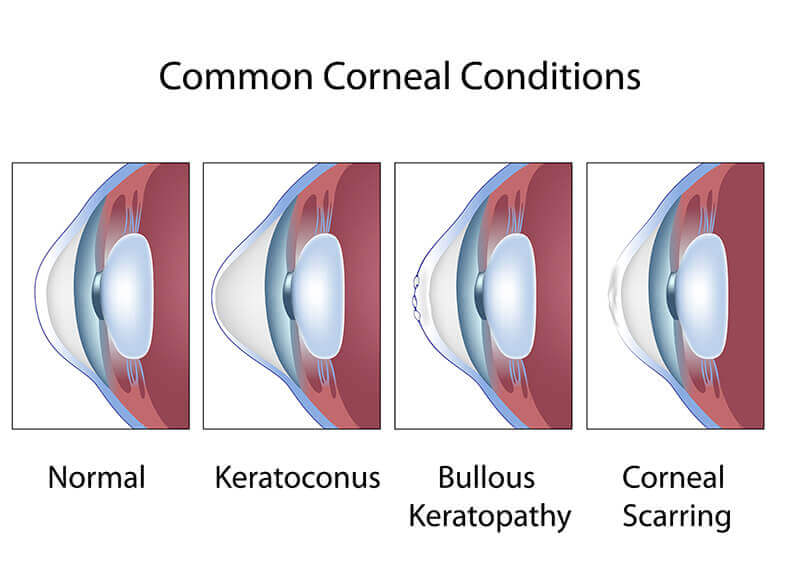The cornea is the eye’s outermost layer. It is the clear, dome-shaped surface that covers the front of the eye. It can be described as being like a window onto the interior of the eye. The main function of the cornea is to allow light to pass into the eye, so that it can reach the lens and then the retina. For this reason, the cornea must be transparent. A second chief function is to help focus light, like a camera lens.

Health of the cornea depends on a number of factors, including the health of the conjunctiva and of the eyelids. The conjunctiva is the tissue which covers the front part of the eyeball (but not the cornea) and lines the back of the eyelids. Both the conjunctiva and the eyelids contain glands which make tear fluid. Tear fluid is an essential part of the systems which maintain the health of the cornea.
Diseases of the cornea can cause distorted vision or even loss of vision. Keeping the cornea healthy is a vital part in protecting your vision and the health of your eyes.





